Distributists argued amongst themselves about...distributism. Their opinions varied. Because of this fact, today there still abound suspicions in many circles, particularly by conservative and progressive elements in the Church who do not understand distributist thought due to prejudice. Appropriation of values by historically recent economical thinking has deflated what were once timeless qualities.
Gilbert Keith Chesterton himself published a response to former socialist turned distributist Arthur Penty in his famous newspaper. Penty was a terrific writer in regards to the guilds, however failing to shed all of his prior ideological baggage, once accused Chesterton of Laissez-faire capitalism. Chesterton responded amusingly:
Laissez-faire was in theory a proposal to let anybody do what he liked. But it was in practice a proposal to let anybody do what he could. And the proposal was never even proposed, until it was perfectly plain that the rich were the only people who could do anything.
What the peasant has is exactly what the Individualist never has and the Socialist never has; common sense. That is, he has a sense of proportion - and disproportion. He knows where to draw the line; instead of loosening all law at one end of the argument, or forbidding all liberty at the other.
(G.K.'s Weekly August 21, 1926)
It is true Chesterton was attempting to make a valid point. Man is real, not mechanical. He is neither a chaotic beast, nor a member of egalitarian fiction. Distributists, a product of these truths, will differ in certain applications but their goals will be the same:
Two writers like Mr. Kenrick and Colonel Acland might differ very much; but they agree that property ought to be distributed and one might think one method and one another. But it is nonsense for me to tell the Socialist that my way of scattering property is a more practical way of concentrating property. It is nonsense for him to tell me that I ought to accept the abolition of ownership as the only really practical establishment of ownership. In other words, the word "practical" is meaningless between us.
(G.K.'s Weekly June 13, 1929)
Distributists believed in the family as the matrix of society. Ownership is meant to serve man in his daily life so he may in turn dedicate his life to family, community and above all, salvation. They rejected the progressives for their abolishing private property. These instituted regulations only serve the State. Likewise, the conservatives accepted progressive policies looking the other way at property accumulation by the wealthy (to the detriment of the peasantry) and continue to eye the State as an obstacle to this objective. What the current economic models offer is not as different as we may suspect. While they reject each other’s methods, they employ the same intrinsic materialist portrait of mankind. For the socialist, man is simply an animal without rights to anymore quality or quantity as another. If man is an animal, capitalists retort, we must fight to survive leaving only the weakest animals to their own devices through natural selection. Beyond moral criticism, we must bow to the irresistible and neutral mechanism just as natural as the laws of physics. In either case, the ends justify the means. Man is reduced from the dignity of God's creation to a pile of genetic uncertainty.
The soul of man, as our Church teaches, is not only worth saving but necessitates salvation.
Yet it is not rash by any means to say that the whole scheme of social economic life is now such as to put in the way of vast numbers of mankind most serious obstacles which prevent them from caring for the one thing necessary; namely, their eternal salvation(Pius XI, Quadragesimo Anno)
People differ in capacity, skill, health, strength; and unequal fortune is a necessary result of unequal condition. Such inequality is far from being disadvantageous either to individuals or to the community.
(Leo XIII, Rerum Novarum)
These words from Pope Leo XIII display his understanding both of the true nature of man, as well as man’s real contribution to society. Man is unique, man will live in variable environments, and individual success will not harm the community at large but rather would prove a benefit. A synthesis between individualism, the social nature of property and business must exist.
Finally, Pius XI certainly understood the pitfalls of what we today call "rugged individualism" or the usurping of individual property to the absorption of the State through socialism. His words, as authoritative as they were prophetic, describe the proper order of man and his relation to society versus the Darwinian cloud on the left and right.
For, as one is wrecked upon, or comes close to, what is known as "individualism" by denying or minimizing the social and public character of the right of property, so by rejecting or minimizing the private and individual character of this same right, one inevitably runs into "collectivism" or at least closely approaches its tenets.



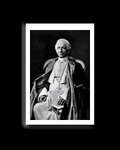
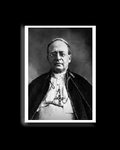


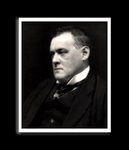
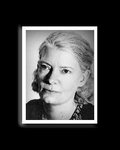
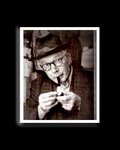






No comments:
Post a Comment